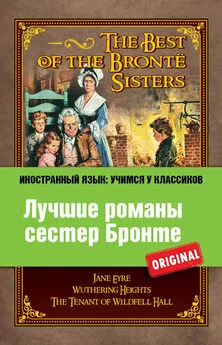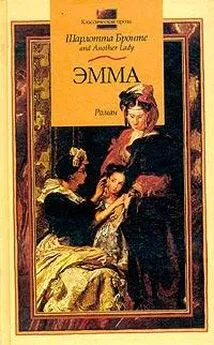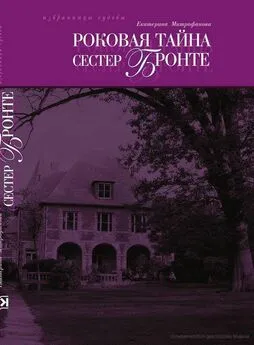Шарлотта Бронте - Лучшие романы сестер Бронте / The best of the Brontë sisters
- Название:Лучшие романы сестер Бронте / The best of the Brontë sisters
- Автор:
- Жанр:
- Издательство:Литагент «Эксмо»334eb225-f845-102a-9d2a-1f07c3bd69d8
- Год:2013
- Город:Москва
- ISBN:978-5-699-61892-7
- Рейтинг:
- Избранное:Добавить в избранное
-
Отзывы:
-
Ваша оценка:
Шарлотта Бронте - Лучшие романы сестер Бронте / The best of the Brontë sisters краткое содержание
«Иностранный язык: учимся у классиков» – это только оригинальные тексты лучших произведений мировой литературы. Эти книги станут эффективным и увлекательным пособием для изучающих иностранный язык на хорошем «продолжающем» и «продвинутом» уровне. Они помогут эффективно расширить словарный запас, подскажут, где и как правильно употреблять устойчивые выражения и грамматические конструкции, просто подарят радость от чтения. В конце книги дана краткая информация о культуроведческих, страноведческих, исторических и географических реалиях описываемого периода, которая поможет лучше ориентироваться в тексте произведения.
Серия «Иностранный язык: учимся у классиков» адресована широкому кругу читателей, хорошо владеющих английским языком и стремящихся к его совершенствованию.
Лучшие романы сестер Бронте / The best of the Brontë sisters - читать онлайн бесплатно ознакомительный отрывок
Интервал:
Закладка:
‘She is very kind,’ I answered, ‘but I am not alone, you see; – and those whose time is fully occupied seldom complain of solitude.’
‘Will you not come to-morrow, then? She will be sadly disappointed if you refuse.’
I did not relish being thus compassionated for my loneliness; but, however, I promised to come.
‘What a sweet evening this is!’ observed he, looking round upon the sunny park, with its imposing swell and slope, its placid water, and majestic clumps of trees. ‘And what a paradise you live in!’
‘It is a lovely evening,’ answered I; and I sighed to think how little I had felt its loveliness, and how little of a paradise sweet Grassdale was to me – how still less to the voluntary exile from its scenes. Whether Mr. Hargrave divined my thoughts, I cannot tell, but, with a half-hesitating, sympathising seriousness of tone and manner, he asked if I had lately heard from Mr. Huntingdon.
‘Not lately,’ I replied.
‘I thought not,’ he muttered, as if to himself, looking thoughtfully on the ground.
‘Are you not lately returned from London?’ I asked.
‘Only yesterday.’
‘And did you see him there?’
‘Yes – I saw him.’
‘Was he well?’
‘Yes – that is,’ said he, with increasing hesitation and an appearance of suppressed indignation, ‘he was as well as – as he deserved to be, but under circumstances I should have deemed incredible for a man so favoured as he is.’ He here looked up and pointed the sentence with a serious bow to me. I suppose my face was crimson.
‘Pardon me, Mrs. Huntingdon,’ he continued, ‘but I cannot suppress my indignation when I behold such infatuated blindness and perversion of taste; – but, perhaps, you are not aware – ’ He paused.
‘I am aware of nothing, sir – except that he delays his coming longer than I expected; and if, at present, he prefers the society of his friends to that of his wife, and the dissipations of the town to the quiet of country life, I suppose I have those friends to thank for it. Their tastes and occupations are similar to his, and I don’t see why his conduct should awaken either their indignation or surprise.’
‘You wrong me cruelly,’ answered he. ‘I have shared but little of Mr. Huntingdon’s society for the last few weeks; and as for his tastes and occupations, they are quite beyond me – lonely wanderer as I am. Where I have but sipped and tasted, he drains the cup to the dregs; and if ever for a moment I have sought to drown the voice of reflection in madness and folly, or if I have wasted too much of my time and talents among reckless and dissipated companions, God knows I would gladly renounce them entirely and for ever, if I had but half the blessings that man so thanklessly casts behind his back – but half the inducements to virtue and domestic, orderly habits that he despises – but such a home, and such a partner to share it! It is infamous!’ he muttered, between his teeth. ‘And don’t think, Mrs. Huntingdon,’ he added aloud, ‘that I could be guilty of inciting him to persevere in his present pursuits: on the contrary, I have remonstrated with him again and again; I have frequently expressed my surprise at his conduct, and reminded him of his duties and his privileges – but to no purpose; he only – ’
‘Enough, Mr. Hargrave; you ought to be aware that whatever my husband’s faults may be, it can only aggravate the evil for me to hear them from a stranger’s lips.’
‘Am I then a stranger?’ said he in a sorrowful tone. ‘I am your nearest neighbour, your son’s godfather, and your husband’s friend; may I not be yours also?’
‘Intimate acquaintance must precede real friendship; I know but little of you, Mr. Hargrave, except from report.’
‘Have you then forgotten the six or seven weeks I spent under your roof last autumn? I have not forgotten them. And I know enough of you, Mrs. Huntingdon, to think that your husband is the most enviable man in the world, and I should be the next if you would deem me worthy of your friendship.’
‘If you knew more of me, you would not think it, or if you did you would not say it, and expect me to be flattered by the compliment.’
I stepped backward as I spoke. He saw that I wished the conversation to end; and immediately taking the hint, he gravely bowed, wished me good-evening, and turned his horse towards the road. He appeared grieved and hurt at my unkind reception of his sympathising overtures. I was not sure that I had done right in speaking so harshly to him; but, at the time, I had felt irritated – almost insulted by his conduct; it seemed as if he was presuming upon the absence and neglect of my husband, and insinuating even more than the truth against him.
Rachel had moved on, during our conversation, to some yards’ distance. He rode up to her, and asked to see the child. He took it carefully into his arms, looked upon it with an almost paternal smile, and I heard him say, as I approached, –
‘And this, too, he has forsaken!’
He then tenderly kissed it, and restored it to the gratified nurse.
‘Are you fond of children, Mr. Hargrave?’ said I, a little softened towards him.
‘Not in general,’ he replied, ‘but that is such a sweet child, and so like its mother,’ he added in a lower tone.
‘You are mistaken there; it is its father it resembles.’
‘Am I not right, nurse?’ said he, appealing to Rachel.
‘I think, sir, there’s a bit of both,’ she replied.
He departed; and Rachel pronounced him a very nice gentleman. I had still my doubts on the subject.
In the course of the following six weeks I met him several times, but always, save once, in company with his mother, or his sister, or both. When I called on them, he always happened to be at home, and, when they called on me, it was always he that drove them over in the phaeton. His mother, evidently, was quite delighted with his dutiful attentions and newly-acquired domestic habits.
The time that I met him alone was on a bright, but not oppressively hot day, in the beginning of July: I had taken little Arthur into the wood that skirts the park, and there seated him on the moss-cushioned roots of an old oak; and, having gathered a handful of bluebells and wild-roses, I was kneeling before him, and presenting them, one by one, to the grasp of his tiny fingers; enjoying the heavenly beauty of the flowers, through the medium of his smiling eyes: forgetting, for the moment, all my cares, laughing at his gleeful laughter, and delighting myself with his delight, – when a shadow suddenly eclipsed the little space of sunshine on the grass before us; and looking up, I beheld Walter Hargrave standing and gazing upon us.
‘Excuse me, Mrs. Huntingdon,’ said he, ‘but I was spell-bound; I had neither the power to come forward and interrupt you, nor to withdraw from the contemplation of such a scene. How vigorous my little godson grows! and how merry he is this morning!’ He approached the child, and stooped to take his hand; but, on seeing that his caresses were likely to produce tears and lamentations, instead of a reciprocation of friendly demonstrations, he prudently drew back.
‘What a pleasure and comfort that little creature must be to you, Mrs. Huntingdon!’ he observed, with a touch of sadness in his intonation, as he admiringly contemplated the infant.
‘It is,’ replied I; and then I asked after his mother and sister.
He politely answered my inquiries, and then returned again to the subject I wished to avoid; though with a degree of timidity that witnessed his fear to offend.
‘You have not heard from Huntingdon lately?’ he said.
‘Not this week,’ I replied. Not these three weeks, I might have said.
‘I had a letter from him this morning. I wish it were such a one as I could show to his lady.’ He half drew from his waistcoat-pocket a letter with Arthur’s still beloved hand on the address, scowled at it, and put it back again, adding – ‘But he tells me he is about to return next week.’
‘He tells me so every time he writes.’
‘Indeed! well, it is like him. But to me he always avowed it his intention to stay till the present month.’
It struck me like a blow, this proof of premeditated transgression and systematic disregard of truth.
‘It is only of a piece with the rest of his conduct,’ observed Mr. Hargrave, thoughtfully regarding me, and reading, I suppose, my feelings in my face.
‘Then he is really coming next week?’ said I, after a pause.
‘You may rely upon it, if the assurance can give you any pleasure. And is it possible, Mrs. Huntingdon, that you can rejoice at his return?’ he exclaimed, attentively perusing my features again.
‘Of course, Mr. Hargrave; is he not my husband?’
‘Oh, Huntingdon; you know not what you slight!’ he passionately murmured.
I took up my baby, and, wishing him good-morning, departed, to indulge my thoughts unscrutinized, within the sanctum of my home.
And was I glad? Yes, delighted; though I was angered by Arthur’s conduct, and though I felt that he had wronged me, and was determined he should feel it too.
Chapter XXX
On the following morning I received a few lines from him myself, confirming Hargrave’s intimations respecting his approaching return. And he did come next week, but in a condition of body and mind even worse than before. I did not, however, intend to pass over his derelictions this time without a remark; I found it would not do. But the first day he was weary with his journey, and I was glad to get him back: I would not upbraid him then; I would wait till to-morrow. Next morning he was weary still: I would wait a little longer. But at dinner, when, after breakfasting at twelve o’clock on a bottle of soda-water and a cup of strong coffee, and lunching at two on another bottle of soda-water mingled with brandy, he was finding fault with everything on the table, and declaring we must change our cook, I thought the time was come.
‘It is the same cook as we had before you went, Arthur,’ said I. ‘You were generally pretty well satisfied with her then.’
‘You must have been letting her get into slovenly habits, then, while I was away. It is enough to poison one, eating such a disgusting mess!’ And he pettishly pushed away his plate, and leant back despairingly in his chair.
‘I think it is you that are changed, not she,’ said I, but with the utmost gentleness, for I did not wish to irritate him.
‘It may be so,’ he replied carelessly, as he seized a tumbler of wine and water, adding, when he had tossed it off, ‘for I have an infernal fire in my veins, that all the waters of the ocean cannot quench!’
‘What kindled it?’ I was about to ask, but at that moment the butler entered and began to take away the things.
‘Be quick, Benson; do have done with that infernal clatter!’ cried his master. ‘And don’t bring the cheese, unless you want to make me sick outright!’
Benson, in some surprise, removed the cheese, and did his best to effect a quiet and speedy clearance of the rest; but, unfortunately, there was a rumple in the carpet, caused by the hasty pushing back of his master’s chair, at which he tripped and stumbled, causing a rather alarming concussion with the trayful of crockery in his hands, but no positive damage, save the fall and breaking of a sauce tureen; but, to my unspeakable shame and dismay, Arthur turned furiously around upon him, and swore at him with savage coarseness. The poor man turned pale, and visibly trembled as he stooped to pick up the fragments.
‘He couldn’t help it, Arthur,’ said I; ‘the carpet caught his foot, and there’s no great harm done. Never mind the pieces now, Benson; you can clear them away afterwards.’
Читать дальшеИнтервал:
Закладка:










